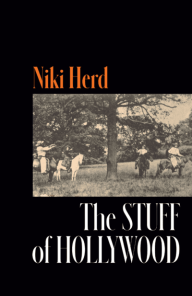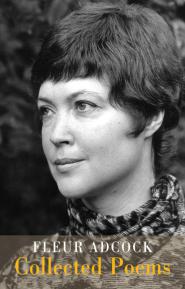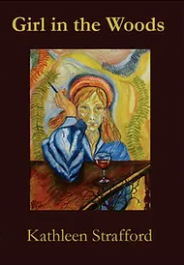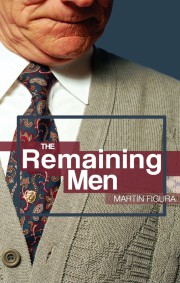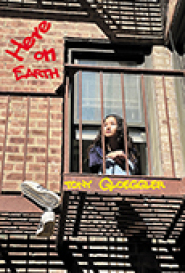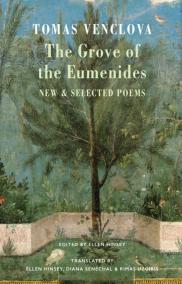
Niki Herd, The Stuff of Hollywood,
Copper Canyon Press, 2024,
ISBN: 978-1-55659-696-4, 112pp, $22.00.
Akin to the phrase, “You can’t make this stuff up,” the phrase, “the stuff of Hollywood,” from which Niki Herd takes the title of her meditation, in prose and verse, on the violent nature of American society, conflates real life tragedy and cinematic portrayals of gun violence and violence generally. Niki Herd explicitly compares the two, from Griffith’s The Birth of a Nation and the January 6 insurrection to Charlton Heston as Moses in The Ten Commandments and his defiant speech before the National Rifle Association, to the 1960s spy/cowboy television series called The Wild Wild West and the Trump-inspired violence in which the then-president used government resources to enable his ridiculous bible prop stunt in Lafayette Square.
Indeed, “compare and contrast” is at the heart of The Stuff of Hollywood: cinema/real life, white justice/black justice, even images of Fred and Ginger dancing in Swing Time and the hack White House press secretary, Sean Spicer, in a duet on America’s Favorite Dance Show. In a passage about the Aurora, Colorado, theater massacre, Herd talks about her impressions of “the link between real violence and that engineered for the moviegoer,” how in the darkened theater, “the power the moviegoer voluntarily relinquished to watch was forever altered once they became prey.”
The opening poem takes place on Easter Sunday, a girl in “violent white / patent leather shoes” experiencing the pageantry of the holiday, though she’s only “in it for the eggs / on the kitchen table with baskets of straw, fake green grass.”
On the idiot box a masterpiece. Charlton
Heston
chooses the staff instead of the sword to free the Israelites
from Egypt. As he makes his way down Mount Sinai,
a man worshipping a golden calf says pry it from
my dead cold hands.
Heston, of course, famously proclaimed to the NRA, defiantly speaking to some absent federal official bogeyman coming for his firearms, “I’ll give you my gun when you pry it from my cold dead hands.” The gun is implicitly the idol, the golden calf that stands in place of God. Thus, Herd drives home the point of the Right’s fetishism about guns, and of course, real life and the movies blend indistinguishably.
Originally called The Clansmen, adapted from a 1905 novel of the same title, The Birth of a Nation celebrates the Ku Klux Klan as the saviors of the American social order, by suppressing the Black vote. Herd splices text from the continuity script with text from the congressional hearings about the January 6, 2021 insurrection in a lengthy middle section that takes up half the book, a sort of “found” poem that underscores the racist impulses behind the MAGA movement and the truly irresponsible behavior of Donald J. Trump, his breathtaking sociopathy. Herd includes transcripts from witnesses citing the armed insurrectionists and the lynch mob mentality driving them and then we read:
[Begin videotape]
PRESIDENT: They were peaceful people. Great people. Un-believable. And I mention love. Love in the air. I’ve never seen anything like
it.
Later we read testimony that
Trump “sat in his usual spot at the head of the table facing a television hanging on the wall. The TV was tuned to Fox News.” For two-and-a-half hours he sat there watching the riot on TV and doing
nothing to stop it, the behavior of a true sociopath, as if he were watching a scripted drama.
Videotape is important to the documentation of so much
violence, the Hollywood-like film-stream, in The Stuff of Hollywood. Not just the January 6, 2021 mayhem and testimony, but the poem, “Auction Lot Number 2” is about the
actual video camera used on March 3, 1991, to record the LAPD’s beating of Rodney King. “The first viral video that both literally & / figuratively shined light on police misconduct in the United
States.” The videotape itself “is not included” in the bidding, she writes, citing the auction catalogue, though “the video was the Jackie Robinson of police videos.” Indeed, think of all the others
that have followed! George Floyd comes to mind. So does Walter Lamer Scott, shot in the back by policemen in Charleston, SC, as he fled. Or Jayland Walker, an unarmed Black man in Akron, Ohio, shot
60 times by police. The list goes on and on.
Herd also highlights the brutality against people of color in the United States: Tamir Rice (Cleveland), Michael Brown (Ferguson, Missouri), Eric Garner (Long Island). The list goes on. She writes about the Sandy Hook tragedy in which school children were murdered by a gunman: “a conspicuous sign the country had turned a corner for if white children were not safe, none of us were safe.” There is irony here but also truth. Guns have taken over America.
As if exhausted by what so often seems the futility of pointing out the dangers and horrors of our gun culture, Niki Herd ends The Stuff of Hollywood with the poem, “In the Aubade for the Late Great Show”:
What can be said that hasn’t been said?
Grief is a winding ravine, both somewhere & nowhere,
unrelenting in its cruelty. No. It’s a thing that beats & beats.
It’s a heart mourning its own enclosure.
Indeed, what more can you say? “Thoughts and Prayers”? The Stuff of Hollywood includes an image by Paula Crown commissioned by For Freedoms depicting two handguns with the words “THOUGHTS” and “PRAYERS.” Herd’s collection is both necessary and insightful. The Stuff of Hollywood is a vital take on violence, power, and powerlessness.
Charles Rammelkamp
To order this book click here
Charles Rammelkamp is Prose Editor for BrickHouse Books in Baltimore, where he lives, and edits The Potomac, an online literary journal. http://thepotomacjournal.com. His photographs, poetry and fiction have appeared in many literary journals. His latest book is a collection of poems called Mata Hari: Eye of the Day (Apprentice House, Loyola University), and another poetry collection, American Zeitgeist, is forthcoming from Apprentice House.
Fleur Adcock, Collected Poems, Bloodaxe, 2024, ISBN 9781780 376837, 621pp, £25.
Neil Astley and Bloodaxe are to be commended for undertaking this magnum opus, an expanded edition of the 2019 Poems published by Victoria University Press. Along with twenty newly published poems, this doorstopper of a volume contains the poems from Adcock’s seventeen publications, which vary in length from the ten pages of Hotspur (commissioned to be set to music) to full length collections.
It would be impossible in a brief review to fully do justice to this body of work, and in any event reviewing, no matter how intentionally undertaken, is bound to be subjective to some extent, so I recommend buying the book to re-discover your own favourites. I was glad to be reacquainted with mine: as an antedote to the many poems celebrating erotic encounters with lovers and husbands, I am always drawn to her ‘Against Coupling’, which explains
Five minutes of solitude are
enough – in the bath or to fill
that gap between the Sunday papers and lunch.
Other delights of the flesh can push sex into second place, however, as her witty ‘Smokers for Celibacy’ attests.
Adcock is never embarrassed to name those she loves (or has grown to hate) and I do wonder how many other poets would take as subjects such intimate matters and moments (and not just to her) as contraception with her first husband, and the children killed by her second husband’s carelessness. Clearly, family presents many opportunities for documentation of detail; several of the collections focus on ancestors, whether researched or imagined. She has no qualms about using her imagination to fill in any gaps:
There’s no one alive to ask. Ok then:
I shall have to interrogate the dead.’ (‘You, Ellen’)
Her sons, their children, friends, and fellow poets are tenderly evoked; and her elegies to the many who have now died are impressive in their honesty, and sometimes tongue in cheek about their use of an elegiac form (she refers in several places to canonical forms of poetry, both from the classics and more modern times). Adcock is known for her ‘conversational’ tone, and this seems to be a dominant style of writing, whatever the subject matter. This makes even esoteric subjects accessible, though in places I would have liked a few more notes by way of background (some are carefully documented). Some Kiwi phrases needed looking up, though there is no reason why the language of the southern hemisphere should be explained to the other side of the globe; indeed such colonial attitudes are touched on in her many poems about the experiences of her antecedents who migrated from Northern Ireland to settle in New Zealand.
Adcock is clearly fascinated by exploring all places connected to her dual heritage, always with keen insight and energy. She consistently conveys depth of emotion, lightness of touch, and absence of maudlin sentiment, no matter what the subject matter; which in addition to the human beings who fascinate her may also draw from close observation of birds, flowers, insects or trees. She has a genius for finding humour in the everyday, and nothing (even drying between the toes) is too humble to arouse her attention.
In her most recent poems, memory and the approach of death are to the fore. Revisiting her educational roots as a classicist, ‘Stint’ explores the Sibyl who asks for death. But she also celebrates life and on the eve of her 89th birthday playfully intends
a practice run –
… along with my fellow funambulists,
into the storms of my ninetieth year.
Vivat, Fleur: we look forward to celebrating your centenary in due course.
To order this book click here
Kathleen Stafford, Girl in the Woods,
Yaffle, 2024. ISBN 9781913122454. 92pp. £12.
Girl in the Woods is Strafford’s first full length book from local (to Leeds) press Yaffle, following a pamphlet in 2019; she has other pamphlets published by Dempsey and Windle and Strafford’s own micro press, Runcible Spoon. As with all her books, the cover art is taken from a painting of her own, its vibrant colours and the centrality of its enigmatic female subject hinting at the subjects it frames.
It is a real treat to have 90 pages of such high quality writing. Whether the subject is Joe Cocker, Jay Gatsby, ‘my hairy armpits’ (who have an ode dedicated to them), or ‘the people I love’, these poems leap off the page with a rude energy. Never asking permission or standing in line to be heard, like her titular subject, Stafford’s persona refuses:
to be sewn up in a pillow case
or dried flat in a book.
One or two poems grate a little; the four pages of narrative in Dame Van Winkle feel a big as if the pudding is being over-egged. The echoes of fairy and folk tales work better in the more tautly focused poems. As well as Angela Carter and other named sources of inspirations, the Bible gets its own re-visioning, with a defiant and truculent Adam ‘Screaming: Art thou stupid?’ In one of many beatitudes, there is the reassurance that
Blessed are the sexy beasts,
Blessed are the ravished, blessed are doggers. (‘The Bible Genesis’)
‘Love is holy,’ she assures us, in a tribute to Allen Ginsberg. Psalm 23 gets re-worked as a morphine-induced plea for comfort post-surgery (Strafford writes movingly about various health issues which despite their best efforts are failing to diminish her zest for life in her eighth decade). She does not shy away from darker subjects, drawing on her own experiences, but also always looking outward to writers, musicians, thinkers she has engaged with over her lifetime. Strafford handles reminiscence and aging with especial aplomb; so often collections written through a retrospective lens get clogged in sentimentality or overly individualistic memories and regrets. Stafford, by contrast, shows real skill in her ability to ‘catch time by the scruff of its neck’ (‘Translation’), and offers her customary rebelliousness about an overly reverential approach:
Do the dead think we are gardener poets planting memories?
Or fellow ghosts carrying our tear-stained hearts in watering cans?’
(‘She Knows a lot of Dead People’).
A distinctive feature of Strafford’s work is the way the poems occupy the page, giving a fresh meaning to the concept of ‘stanzas’ (derived from the Italian for ‘room’.) For example, in ‘The Things Clouds Do’, the indented shorter lines of the third and fifth stanzas draw attention to images captured instantly:
puckered lips
slopes of whiskers
licking droplets
mingled
sweat and tears,
and the aforementioned ‘Ode to my Hairy Armpits’ owns the space in an unapologetic dance.
The poems are testimony to a life lived to the full, with lots of sex, drugs (all be-it prescription) and rock and roll. Strafford’s wit and panache means these topics may be alluded to rather than stated boldly: I enjoyed the teasing ‘he’s so very very and so am I’. A jealous boyfriend hopes for a ‘pity fuck’; Norma ‘fingers Boogie Woogie on his cock’; after all these years the feminist in her is ‘still not sure whether to spit or swallow’, and questions how ‘we made ourselves fuckable’ (‘Menopause’). The collection ends with a triumphant paean to life, urging us to:
Take today and own it
Take today and fuck it
perfectly (‘Perfect Performance Poetry’)
Reading- and re-reading these poems will, I guarantee, enable you to do just that, in whatever way you will.
Hannah Stone
To order this book click here
Hannah Stone is the author of Lodestone (Stairwell Books, 2016), Missing Miles (Indigo Dreams Publishing, 2017), Swn y Morloi (Maytree Press, 2019) and several collaborations, including Fit to Bust with Pamela Scobie (Runcible Spoon, 2020). She convenes the poets/composers forum for Leeds Leider, curates Nowt but Verse for Leeds Library, is poet theologian in Virtual Residence for Leeds Church Institute and editor of the literary journal Dream Catcher. Contact her on hannahstone14@hotmail.com for readings, workshops or book purchases.
Martin Figura, The Remaining Men,
Cinnamon Press 2024, ISBN: 9781788641548,
£9.99.
The cover photograph of The Remaining Men is a fitting introduction to what lies within: an older man's lined face, his beige cardigan with paisley tie and tiepin fills you with recognition and a rush of tenderness: this could be your father, uncle, grandfather. Solid, decent, mysteriously ordinary... generations of men live and breathe through these poems. This is a collection which stays with you after you have closed its pages. The poems have lives of their own. Deceptively easy and simple, they delve to the heart. Photographs illuminate narratives of personal and family histories, alongside a more official and public photo of a line of greatcoated men at Churchill's funeral where one old man, vulnerable, sits in a chair.
Photography is Figura's other great passion and many of his poems are written with that photographer's precise and attentive eye. One of my favourite poems, The Chimney Sweep, accompanies a photo and uses it with a deceptively light touch to explore slippages in family identities from generation to generation. He has said (in an interview with Fire and Dust) that 'the lexicon of a photograph allows me to sometimes say the unsayable' and for me this describes the magical realism that his fusion of photography/poetry make possible.
Figura has also said in the same interview that this book is an attempt to understand how Britain has changed since 1956, the year of his birth. It interweaves a family narrative fractured by violence with an astute awareness of the socio-political. Figura's gift is that these are balanced with skill, grace, and a humour whose light touch belies his craft.
The collection as a whole is a deeply moving evocation of the men still standing – despite time, conflicts and wars, the closing of the pits, and perhaps most of all the terrible disintegration of the NHS. It is a clear-eyed, unsentimental and loving consideration of what it is and was to be an older man in this time, true to the voices from which Figura has drawn these beautiful poems.
Pippa Little
To order this book click here
Pippa Little lives in Northumberland where she is a poetry tutor for the Faber Academy in Newcastle. She's working on a new collection.
